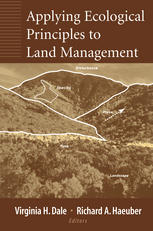

Most ebook files are in PDF format, so you can easily read them using various software such as Foxit Reader or directly on the Google Chrome browser.
Some ebook files are released by publishers in other formats such as .awz, .mobi, .epub, .fb2, etc. You may need to install specific software to read these formats on mobile/PC, such as Calibre.
Please read the tutorial at this link: https://ebookbell.com/faq
We offer FREE conversion to the popular formats you request; however, this may take some time. Therefore, right after payment, please email us, and we will try to provide the service as quickly as possible.
For some exceptional file formats or broken links (if any), please refrain from opening any disputes. Instead, email us first, and we will try to assist within a maximum of 6 hours.
EbookBell Team

4.4
92 reviewsThis volume applies ecological principles and guidelines to understand past and current land use and land management; and more importantly, endeavors to promote more ecologically sound approaches to future land use and management decisions. The volume incorporates case studies from a wide variety of disciplines and perspectives. The case studies explore past and current land use decisions, on both public and private lands, and include practical approaches and tools for land-use decision-making. Perhaps the most important feature of the book is the linking of ecological theory and principle with applied land use decision-making - the theoretical and empirical are joined through concrete case studies of actual land use decision-making processes. In this volume, readers will find a statement of fundamental ecological principles that are relevant for land use planning and management, coupled with multiple in-depth explorations of the application of these principles in action. In addition, most case studies describe specific tools and approaches for incorporating endeavors to join fundamental ecological knowledge with cutting edge application in order to both educate and provide concrete guidance for decision-making. The intended audience is broad and multidisciplinary, from undergraduate and graduate level courses in environmental studies to professional land use planners.